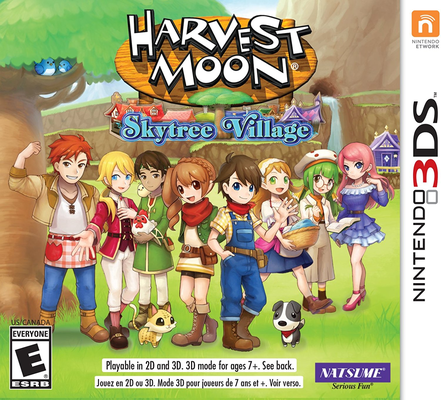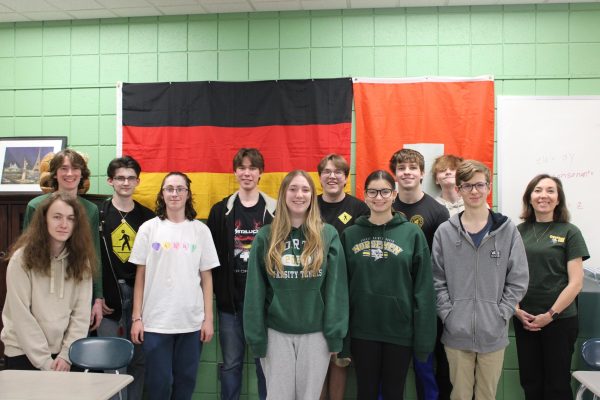The Game Stop: Harvest Moon Skytree Village

January 24, 2018
Harvest Moon Skytree Village is a repetitive, unintuitive game. Players spawn as a young adult on a farm, after selecting their gender and preferred name, and are greeted by the Harvest Goddess, who explains that Skytree Village was once able to be lush and beautiful when the Villagers cared. This gave her the power to hydrate the land and produce wonderful crops. The villagers didn’t appreciate her enough and she couldn’t nourish the land, and all the villagers left.
The game revolves around reviving the ‘Sacred Skytrees,’ which can be achieved through raising animals, chopping down trees, fishing, growing crops and more. These Skytrees are the key components to attracting non-playable characters (NPCs) and bringing life back to Skytree Village.
This background story gives the game a much needed meaning, so that the continuous action of, for example, planting and harvesting crops, doesn’t seem as tedious. It provides players a reason to continue doing the same thing over and over again, almost as a means to an end.
Players can acquire ‘Chemistry’ with NPCs, and even marry one of the bachelors or bachelorettes, if enough Chemistry is generated through interaction. These interactions include talking to the person, trading goods with them or completing requests of theirs.
As the player becomes more experienced with the game, more NPCs are revealed, more plants can be planted and more farm animals can be raised, which makes the game much more complicated, and the player is required to prioritize based on the requests they’ve been given by the NPCs.
Another small problem is the sounds. The sounds in game — unless they’re turned off — makes players think their ears are bleeding, whether they have headphones on or not. The watering can sound may be the very worst. It sounds someone throwing up, which obviously is pretty terrible, especially since players need to water plants every day in-game.
The soundtrack, on the other hand, is delightful. It’s happy, bright, and makes want to listen for more.
It’s a good thing the soundtrack is fun to listen to, not only because it’s a positive aspect of the game, but also because it takes so long to do stuff. Progressing in the game means gardening, and to progress faster players need more space to garden, which means they’ll need to expand. After taking all this time to get more land to plant on, what is the reward? More plants to plant, and then water every day for an in-game week.
At a certain point, players spend their entire day watering the plants, and their character goes to bed at a very late time. Players have hearts sort of as ‘health points,’ so they lose some hearts when they work on things, and going to bed later means less hearts are replenished from the day before. Less hearts means players can do less. Eventually, when the character has no hearts left, they’ll pass out and miss a week, in-game.
So progressing means planting more, which means more work to take care of them, which means more hearts lost, as well as later bedtimes, which means less hearts replenished that night. This chained paradoxical event means that, eventually, players lose all their hearts if they wish to progress at all in the game. The plants die after not being taken care of, and players need to start their garden from scratch. Again.
The game moves with experience, which is natural. Despite the problems and inconveniences the game presents to the player, intentional or not, there are too many games that move forward with or without them, such as the Batman Arkham series and Undertale. This is a nice change of style, because players won’t get new quests unless they’ve got the tools or material to complete it, and there are no “impossible” tasks assigned. New characters won’t introduced unless they’re needed or players have progressed far enough in the game for them to be useful, either.
All games have their ups and downs, just like this one. This time, the downs outweigh the ups, and make the game seldom enjoyable. And it gets less fun the further players progress. If people have any common sense, they won’t play this game. Quite frankly, it’s a waste of money.












